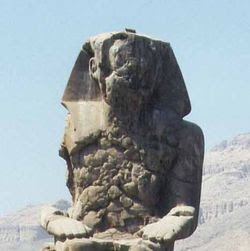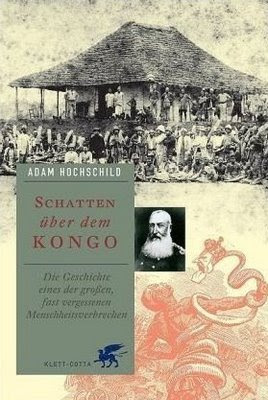
by Paulette Goudge
Transciption:
Djikeungoué Pente
Gender, Colonialism and White Feminism
The genesis of ..[my work] came from the observation that, within development and aid discourse, a great deal of attention seems to paid to selected power relations, notably those involving gender; whilst that of white power was completely absent. These was a contrast between the attention paid to issues of gender in development discourses and practice and the silence around issues of ´race` and racism, specifically white racism. It is interesting in this respect to consider whether there are any appropriate parallels to be drawn with colonial history. There is a tendency within development circles to assume a solidarity based on gender, which frequently eschews all other axes of oppression. In their studies of white women and imperialism, Vron Ware (1992) and Anne McClintock (1995) offer useful insights into this. Clearly the language has changed somewhat, but the image of women in the colonial era sallying forth on their peculiarly womanly mission to educate and civilise was underpinned by discourse of women´s affinity with other women; and Ware shows how the condition of slavery was likened in a number of pamphlets to the state of subjection of the average Britisch married women, and how this was meant literally not metaphorically. One such leaflet tried to prove that British women were actually worse off than slaves, arguing that a female slave was not required to submit „to a second state of individual domestic slavery to the male slaves“ (p103). Ware shows that the abolitionist movement and early feminist publications were deeply influenced by imperialism, and frequently exhibited deeply held racialised attitudes. Many of the most radical women nonetheless kept black women as servants, failing to apply their analysis of unequal power relations to their own situation – a phenomenon which I have also exposed in relation to present day devolopment workers, including myself [...].
Breaking away from a conventional lifestyle in Britain was a common motive for female imperial adventurers, but after a while feelings of disillusionment and frustration were usually experienced, often blamed on the non-co-operativeness of the recipient community. Ware quotes from the diaries of one Englishwoman who concluded that her efforts to educate Indian women were continually thwarted by Idian men, towards whom she developed a deep and lasting hostlity (p147). McClintock discusses the writings of Olive Schreiner at length, observing how she exhibits a resentment of African women, which „would throw radically into question Schreiner´s monistic longing for a humanist unity, then later, a universal, feminist solidarity“ (1995, p267). Ware (p120) summarises the „English woman abroad“ as a „many faceted figure“ :
„from an intrepid adventuress defying racial and sexual boundaries to heroic mother responsible for the preservation of the white ´race`; from the devoted missionary overseeing black souls to the guardian of white morals; from determined pioneer and companion to the white man to a vulnerable defenceless piece of his property...“
I would suggest that aspects of these roles have become bound together with the specialist, expert position now occupied by ´First World` women who still, though perhaps with less obvious missionary zeal, undertake their travels with very similar motives, glimsing in development and aid instead of empire „the radiant promise of escape“ (McClintock, 1995, p260); and they often seems to conclude with similar feelings of hopelessness and disillusion. The contradiction and tensions of white women´s relationships with ´Third World` women also demonstrate significant continuities, as I illustrated in the interview material and through and personal reflection [...].
White Feminism and Racism
„In Nicaragua we cannot conduct a struggle of a Western feminist kind. This is alien to our reality. It doesn´t make sense to separate the women´s struggle from that of overcoming poverty, exploitation and reaction. We want to promote women´s interests within the context of the wider struggle.“ – Nora Astega [1]
bell hooks (1989, 1990a, 1990b and 1996), Audre Lorde (1996) and Gloria Anzaldua (1987) are amongst those black women in the US who have challenged the hegemony of white, Western feminism. Many of their arguments are paralleled by writers from the „Third World“, who raise objections to the notion the all women, whrerever or whoever they may be, share the same kind of experiences as women, and therefore an automatic kind of solidarity. Avtar Brah places the debate in the British context and problematises the notion of global sisterhood [2] Such a sentiment of solidarity based solely on identification as women can be fractured along a number of lines. Firstly, there is the line of ´race` or, more particulary, racism. Bell hooks points out that, historically; „Few, if any, white women liberationits are willing to acknowledge that the women´s movement was consciously and deliberatly structured to exclude black and other non-white women and to serve primarily the interests of middle and upper class college educated white women seeking social equality with middle and upper class white men... it is precisely the racism and classism of exponents of feminist ideology that has caused a large majority of black women to suspect their motives, and to reject active participation in any effort to organise a women´s movement“ (hooks, 1990a, p.147)
Audre Lorde identifies the anger that is her reponse to racism, challenging white women to respond to the anger, not to retreat in fear, but emphasising that responding to racism must also mean responding to „the anger of exclusion, of unquestioned privilege, of racial distortions, of silence, ill-use, steorotyping, defensiveness, misnaming, betrayal, and co-optation“ (1976, p.172). Such strictures could also be usefully applied to power relations within the remit of development. A number of women whose primary interests lie in the interaction between the forces of feminism and those of post-modernism have also contributed positively to these debates; Nicholson (1990) and Butler and Scott (1992), for example, illustrate how white, western women who would criticise much theory and scholarship on the basis of ist universalising tendencies, nonetheless set about establishing a unified category of women which, securely based in the edifices of white, middle-class European and North American academia, is in turn reflected in much of the gender and development literature quoted above. The assuption of a particular standpoint, such as that of feminism, may well challenge the dominance of masculinist approches, but it runs the risk of establishing instead the dominance of a particular group of women, wo have the power and the confindence not only to speak, but to speak loudly enough to be heard and be assured of their audience.
Relations between women across the imperial divide, or between North and South, have also come under critical scrutiny (I discussed some the colonial connections earlier in this chapter) [3] As Vron Ware points out: „there would not be much point in understanding how the category of white feminity was constructed through history if this information was not used to engage with contemporary ideologies of domination“ (1992, p 43). Attempts to create a category of ´woman` which transcends all other barriers, as were reflected in the interviews cited above, are often thwarted by differences of class or ´race`, and by the ability of the Northern/white women to exercise powers and obtain knowledges in ways only made possible by the history of imperialism and the current-day operations of glabalisation Thus there cannot be a basis for automatic solidarity or identification on the basis of gender.
As Chandra Talpade Mohanty argues: „The assertion that women constitute a potential world political force is suggestive: however, Big Brother is not exactly the same even in, say, the US and Latin America“. (1992, p79) It may well be the case that women are suffering disproportionately more as exploited ´Third World` labour in relation to men, but the situation is more complex and there are a number of other exploitative dimentions also at work:
„The Mexican government and wealthy growers are in partnership with such American conglomerates as American Motors, IT and T, and Du Pont which own factories called maquiladores. One-fourth of all Mexicans work at maquiladores, most are young women. Next to oil, maquiladores are Mexico´s second greatest source of US dollars. Working eight to twelve hours a day to wire in tne backup lights of US autos or solder minuscule wires in TV sets is not the Mexican way. While the women are in the maquilodores, the children are left on their own. Many roam the street, become part of cholo gangs. The infusion of the values of white culture is changing the Mexican way of life“ (Anzaldua, 1987, p10)
It is not necessary to subscribe wholeheartedly to this somewhat essentialist notion of the Mexican way of life to posit that US and European consumers, as well as those profiting from the choice of location for production of TVs and cars (whether manufactured in Mexico or elsewhere in maquiladores in the ´Third World` - their number is also on the increase in Nicaragua – see Richards, 1998 and CAWN), carry some respossability for this particular dynamic of oppression – men and women. And to some extent this must undermine the possibilities for solidarity. Furthermore, women within the ´Third World` do not form a homogenous block, as Mohanty demonstrates in her classic text Under Western Eyes: Feminist Scholarship and Colonial Discourses (1998, p66); she argues that a sizeable amount of western feminist work on women in the ´Third World` is driven by „assumptions of privilege and ethnocentric universality on the one hand, and inadequate selfconsciousness about the effect of western scholarship on the ´third world` in the context of a world system dominated by the west on the other“.
Jane Parpart, investigationg WID (Women in Devolopement) and GAD (Gender and Development) literature, comments that much of it has represented ´Third World` women as more or less uniformly benighted, overburdened beasts of labour who are totally represented by their menfolk: „the poor Third World woman remains truly ´other` to her development expert sisters“. (Parpart, 1995, p254)
The answer to the challenges faced by ´Third World` women is often portrayed as being to allow ´Third World` peoples a degree of autonomy, or facilitating their empowerment in relation to their developmental needs. Parpart, for example, is in favour of what she terms a postmodern feminist focus (p262), which would „encourage development planners to pay more attention to the concrete circumstances of Third World and minority women´s lives“ she feels that a search for „previously silenced women´s voices“ and an attempt to ensure that the goals and aspirations of ´Third World` women are „discovered rather than assumed“ would provide „a more subtle understanding of ´Third World` women´s lives“ and this would ensure that development theory and practice is more grounded in the lived experiences of ´Third World` women. I would suggest that this will result in a different approach in practice only to the extent that white power and racialisation are also taken into account.
As Spivak (1988, p28) points out, it is only in the context of colonial production that the subaltern has no history and cannot speak; and it is a challenge to those of us operating largely in that context to hear and to act upon what is said. Domitila Barrios de Chungara, for example, in her book Let Me speak !, describes her visit to an international women´s conference thus:
„some women stood up and said: men are the enemy – men create wars, men create nuclear weapons, men beat women – for me it was a really rude shock. We spoke very different languages, no? – for us the first and main task isn´t to fight against our companeros, but with them to change the system we live in for another, in which men and women will have the right to live, to work, to organize... the day the women spoke out against imperialism, I spoke too. And I said how we live totally dependent on foreigners for everything, how impose what they want on us, economically as well as culturally“. [4]
This echoes the quote from Nora Astega, the Nicaraguan Vice-Minister of Foreign Affairs during the Sandinista government, reproduced at the beginning of this section. It seems naive, then, to expect Barrios de Chungara or Astega to wholeheartedly embrace Western feminism, especially as their view of the necessity of a wider struggle, incorporating the impact of class, imperialism and racialisation together with gender, seems to be widely ignored in Western, white feminism writing. [5]
Concluding Comments
The apparent motivation, evidenced in the quotations above, that drives the concern of Western women and men in relation to the position of ´Third World` women is, as I have pointed out, often expressed in terms of solidarity and a sense of common interest between women across the globe. I have tried to problematise this, not in order to argue that gender inequalities in the ´Third World` (and, indeed, in the ´First World`) do not exist or are unimportant, but in order to suggest that gender issues cannot be treated in isolation from other affective power relations. To reiterate the quote from Nora Astega, it is necessary to emphasise the wider struggle and to continually take other power relationships, including economic exploitation, into account. To consider the impact of the racialisation of the relationship between the ´First World` and the ´Third World` would contribute to a greater understanding of how labour and materials of ´Third World` peoples can be exploited and yet, at the same time, be positioned as the needing-to-be-developed and therefore as the inferior. Currently , I would suggest, the role of ´First World` women in this process is critical, for not only does it contain ist own seeds of paternalism, but it also overlays and obfuscates other power relationships which may serve the interests of Western women at the expense of their ´Third World sisters`.
It is important, therefore, to attempt to move on from a relatively constricted view of Western women in the position of offering help or solidarity to their ´Third World sisters`, based on a uni-dimensional definition of power relations. We require, I would argue, less chronicling of the lives of othered women, no matter how inspiring, and considerably more analysis of how power relations of gender interact, reinforce or undermine those of class and racism. This might involve Western women acknowledging unconfortable aspects of their own power in praxis. The examples given so far throughout this book indicate a number of highly effective stratagems in operation, which utilise a range of diffenrent kinds of power, and which draw on both gender relations and nationhood as ways of feeding into existing power inequalities: the power of the gaze of the West, wich carries with it the abrogated right to survey both land and peoples and to then pass judgement – judgements which usually find a lack or deficiency in some way; the power to appropriate – to decide simply what belongs to whom and for how long; the power to classify, both nations and individuals into developed and undeveloped; the power to patronise by pronouncing something (sometimes a whole country) as beautiful, acceptable or hospitable; the power to summarise whole nations and peoples as ´this or that` and to act accordingly; the power to negate – to treat people as if they are not a part of what is happening and are unaffected by decisions made in geographically distan lands; and the power to judge that some power relations are important, worthly of study and comment, whilst other power relations must remain hidden and unexplored.[...]
17.03.2012, 11:07
© Transciption: Jean-Baptiste Pente
...............
[1] Nora Astega, quotetd in Momsen & Townsend, 1987, p.22
[2] 1996, p.122: see also Hirshman in Marchand and Parpart, 1995, p.47
[3] See Chaudhuri and Strobel, 1992 for a further account of Western women and their role in the imperial project located mainly in India and Africa.
[4] Barrios de Chungara, 1978, p198
[5] See Hazel Johnson for an alternative view, where she presents arguments supporting the view that feminism was not imposed by Western feminist women but came about through a process of gradual empowerment (1992, p.170).
- Source: The Whitness of Power, Gudge, 2003, p. 151-156
![BOIS-CAIMAN-1791-CLUB [the african memory]](http://2.bp.blogspot.com/-y1iFgvvs3KM/XvjJ02WgIAI/AAAAAAAAFZU/0qL_dwjiGbcxVuoqpcexBcs7NLJ-z5fcACK4BGAYYCw/s1600/BannerBEST-aktuell----.gif)












































0 Kommentare:
Kommentar veröffentlichen